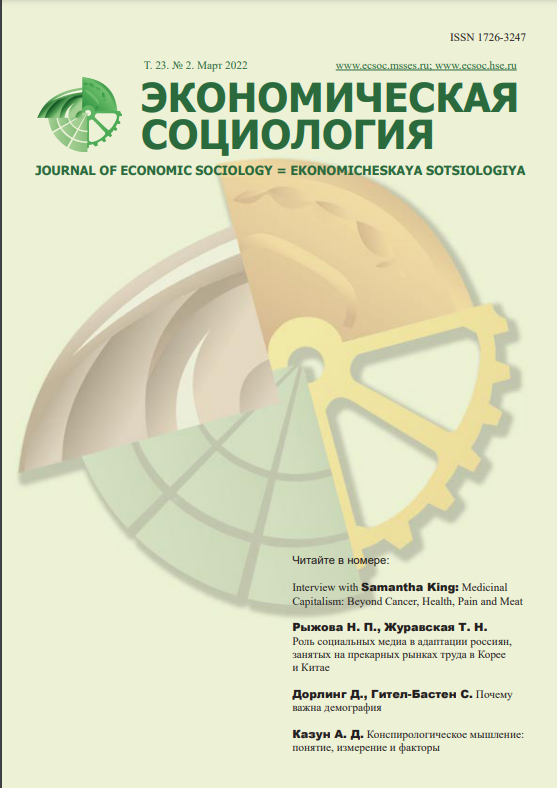Conspiracy Thinking: Concept, Measurement and Factors
Abstract
The article provides an overview of the literature on conspiracy thinking. Although there is no consensus on the definition of this concept, as a rule, researchers pay attention to the following similar aspects: belief in secret and covert actions, a group of interested persons influencing world processes or hiding information about something, the false or implausible nature of conspiracy theories. There are two fundamentally different approaches to measuring conspiracy thinking: (1) in terms of agreement with several real conspiracy theories, (2) in general terms, without reference to specific conspiracy theories. Each of these approaches has serious limitations, both specific (for example, the arbitrariness of the choice of conspiracy theories for the first approach and the lack of one-dimensionality of the scales for the second), and general (the difficulty of using the scales in comparative international studies). The article provides examples of scales that correspond to each of the approaches. Factors influencing belief in conspiracy theories can be divided into psychological and social. Conspiracy beliefs are more common in people with high anxiety, low self-esteem and less developed analytical skills. In addition, conspiracy theories are more often believed by people with low social status and educational level, low level of generalized and political trust, belonging to the ends of the ideological spectrum, and consuming information from glossy magazines and social networks. The role of age and religiosity is less straightforward.













